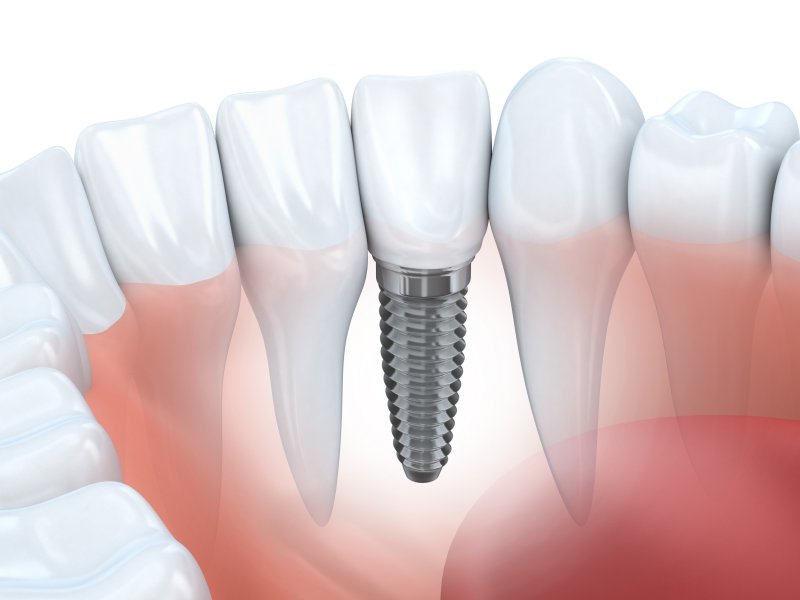
When you first get a dental implant, your dentist will tell you to care for it like you do natural teeth. In other words, you should brush it twice daily and floss it once daily. Even so, you may wonder why an implant needs to be flossed. Brushing is a good way to clean its surface, but flossing can seem unnecessary since it’s a fake tooth. That being the case, why do dentists recommend it? To learn the reason, here’s a summary of why flossing dental implants is important and four tips for doing it.
Why Flossing Your Dental Implant(s) is Important
As you may know, dental implants can potentially last for 15-20 years. However, this lifespan only applies when they’re correctly maintained. Implants that aren’t taken well cared for will likely fail before the fifteen-year mark.
Just brushing your restoration won’t prevent implant failure, as there are areas in your mouth your toothbrush can’t reach. When you don’t clean said areas daily, plaque buildup can lead to an infection that causes your replacement tooth to fail.
Given the above, daily flossing is necessary for dental implant maintenance. More specifically, it’s the only way to reach the spaces missed by your toothbrush.
Implant Flossing Tips
Because an implant isn’t a natural tooth, flossing it requires a different approach. Next time you floss your teeth, practice the following when you get to your restoration:
- Thread the Floss Properly – You’ll need to thread the floss between your dental implants and gums. To make things easier, use a floss threader with a loop at one end and a flat edge at the other. This tool will thread 18-inches of dental floss through the loop to effectively clean your dental implants.
- Move the Floss Gently – Hold the floss around your fingers in each hand and slide it up and down the sides of your implant. You’ll release the floss from one hand to remove it from your dental implant. You’ll repeat the process for each post.
- Consider an Oral Irrigator – Patients who find traditional floss difficult to use can try an oral irrigator. Also known as a water flosser, it emits pressurized water to loosen food and plaque from tight spaces in your mouth.
- Exercise Strong Caution – If you aren’t careful, flossing could break the peri-implant seal that attaches your gums to your replacement tooth. That would let bacteria enter the gum pocket and jawbone, which could lead to implant failure.
While a dental implant is artificial, it needs to be flossed just like any other tooth. Talk to your local dentist for other suggestions that’ll help your restored smile last a lifetime.
About the Author
Dr. Karl Arakelian is a dentist in Bradford village of Haverhill, MA. He earned his DMD from the University of Pennsylvania in Philadelphia. He then completed a General Practice Residency at Tufts-New England Medical Center. His specialties are preventive, cosmetic, and restorative dentistry, as well as emergency dental services. Dr. Arakelian currently practices at his self-titled clinic and can be reached at his website or by phone at (978)-373-0901.






